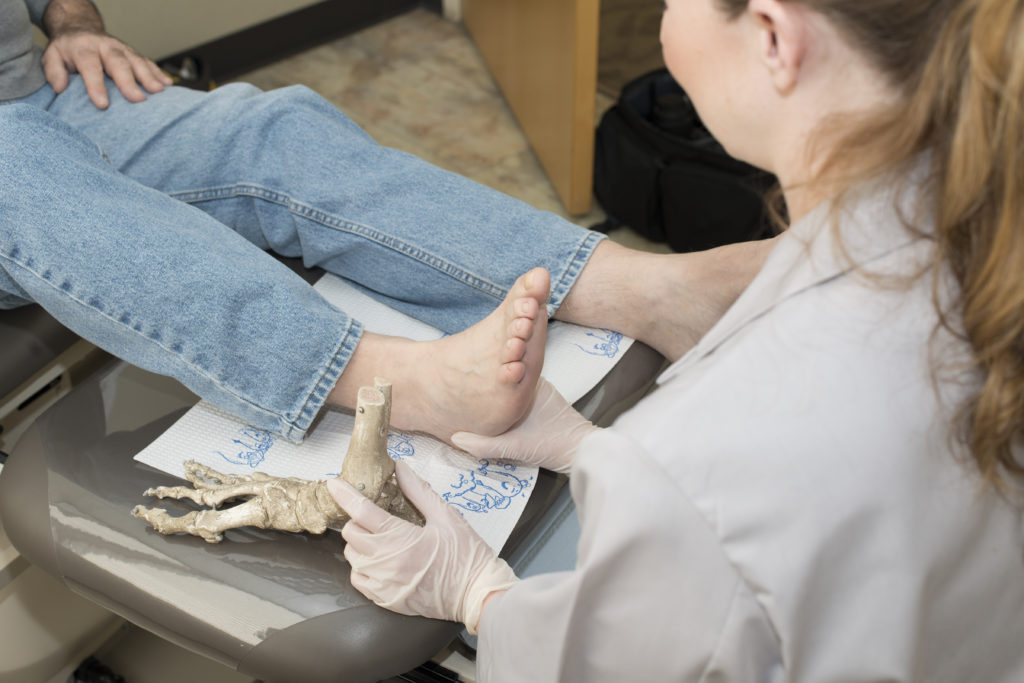High blood pressure – or hypertension – is a common condition where the blood flowing through your heart is rushed forcefully against the walls of the arteries. Because the blood flow is significantly faster than normal, causing the pressure against the arteries increases, blood flow to other areas of the body is affected as a result. According to heart.org, nearly half of all adults in America currently have high blood pressure.
Many symptoms can be seen and felt in the lower legs and feet – however, many people tend to disregard these signs and attribute them to other causes such as stress, sleepiness, and simply getting older. The pain, visible signs, or sensations in the feet can be persistent, or come and go sporadically.
Common symptoms
When circulation in your feet is affected and lowered, you may experience one or many of the following signs:
- Wounds that form on the legs and feet that take longer to heal
- Unusually colder feet and legs
- Visibly usual skin tone (bluish, even purplish in color)
- Numb and tingling feet or legs
- Hair loss on feet and/or legs
- Cramping post exercise
Getting Diagnosed
Early detection is key to preventing life-threatening conditions caused by high blood pressure such as a blood clot, stroke or heart attack. Most primary care physicians check blood pressure during routine visits, but if you have a history of high blood pressure or heart attack or stroke in your family, you should be checked every few months starting at age 18, or even earlier, if a physician expresses a cause for concern.
Hypertension Treatment
Our bodies have evolved to warn us of disease long before we may realize there is something wrong with us. The feet and legs are a good place to start and are usually an accurate reflection of our overall health and wellbeing. That’s why it is crucial to get checked out right when you notice anything abnormal regarding your legs or feet. Once you take that step, your doctor will rule out underlying causes of high blood pressure such as sleep apnea, thyroid problems, illegal substances, or kidney issues. Then they will recommend the best treatment options given your age, race, ethnicity, and other influencing factors like lifestyle or other medications you take.
Most typical treatment of hypertension include prescribed medications, but there are also many holistic ways to control high blood pressure like exercising on a regular basis, eating healthy, staying away from salt, limiting alcohol consumption, effectively dealing with stress, and many more.
As always, if your feet are hurting for any reason, make sure to call our Evanston office – Evanston Podiatric Surgeons at 847-475-9030, or Downtown Chicago office –Mag Mile Foot and Ankle Institute at 312-236-3507. Our care options for foot injuries and pain include some of the most cutting-edge procedures and technologies available!

